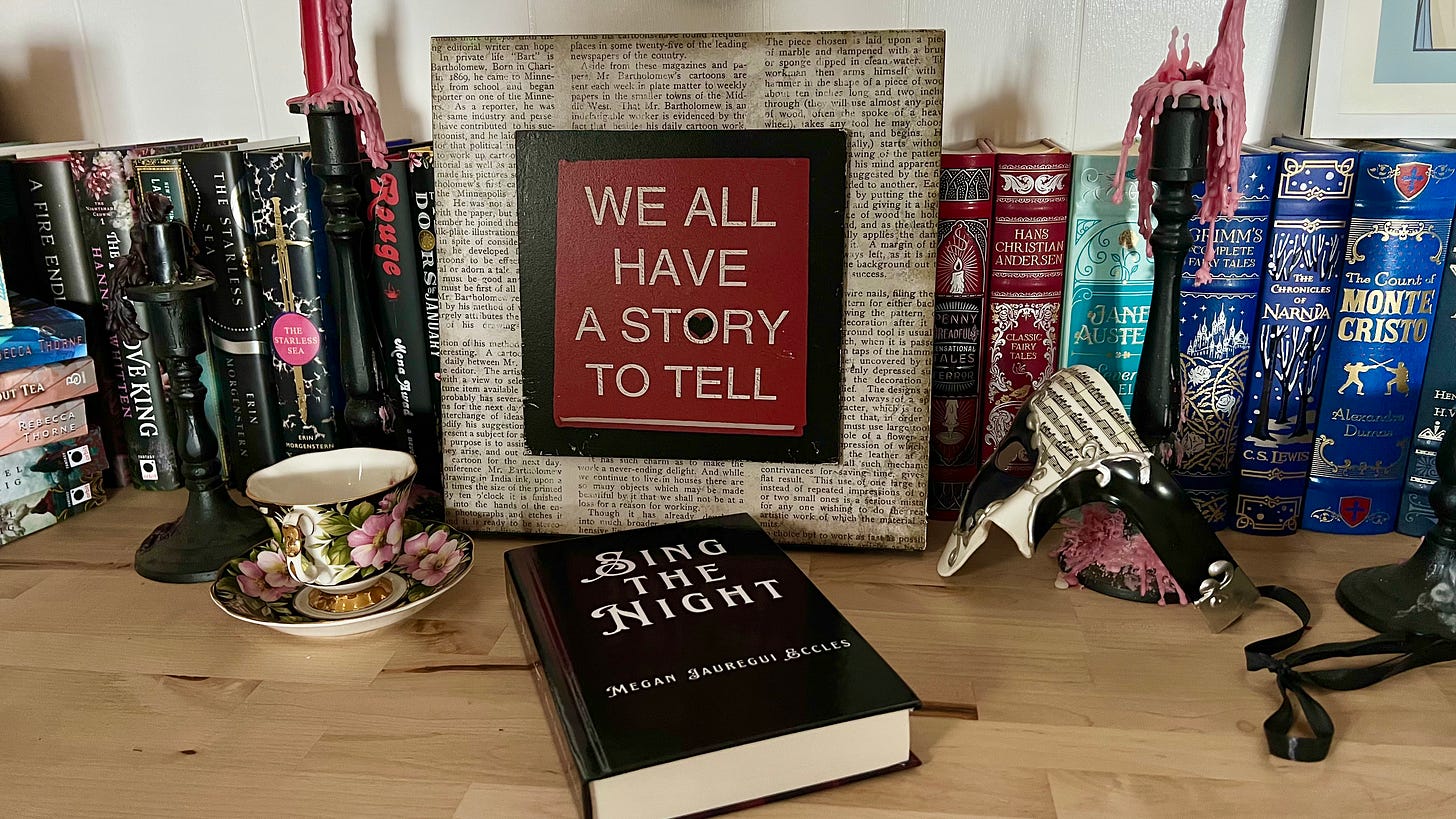The Pros and Cons of Traditional Publishing
How to know if traditional publishing is right for you
Hello, friends! Welcome to the first part of this series where we demystify publishing without any cost to you. Publishing is hard enough without people trying to take advantage of writers for large sums of money. In traditional publishing, money always flows to the author. So let’s start the journey to make that money flow.
If you don’t already know me, hi! My name is Megan Jauregui Eccles and my debut novel SING THE NIGHT comes out next year with 8th Note Press. I have been working towards publishing for over ten years. I also used to be an assistant to a literary agent, where I got the inside scoop on how the publishing industry works. I have an MFA in Fiction and teach creative writing at John Paul the Great University. I have made writing and the publishing industry my whole personality.
The best part of living in this modern publishing era is that there are so many valid paths to publication. There’s indie, hybrid, small press, serialization, and of course, traditional, all of which are valid paths as long as their are aligned with your goals. I will be focusing on traditional publishing.
How do you know traditional publishing is right for you?
You are very patient.
Traditional publishing takes years: first to find an agent, then to go on submission, then for the book to come out. There is no instant gratification on this side of publishing and you have to be prepared for that.
You want your books to be readily available in bookstores and libraries.
With traditional publishing, your book being stocked by bookstores is generally a given. It can be done on the other sides, but can be harder. A big publisher will have no problem with distribution and ensuring your book is stocked. (Note: there are about a million circumstantial caveats that we will talk about at a later date, but the general rule does apply.) Likewise, library placement is vital for a lot of writers and readers and the channels to make that happen are already in place for traditional authors.
You want a team behind you to handle editing, marketing, and logistics.
You get to be the writer and really don’t have to worry about much else in traditional publishing. If you’re writing fiction, you don’t have to worry about a platform (though it can help, more on that later) or figuring out layout or cover or how amazon categories. You get to focus on what you do best: write. And you have a lot of people to support you along that journey. The validation from acceptance in the publishing world can be a huge relief after struggling to find a place in publishing for years.
You want to get paid upfront for your work.
One of the biggest benefits of traditional publishing is the advance. The publisher buys into your career which makes it possible for a most authors to continue writing. Once you’ve earned out at that advance, you’ll get regular royalty payments.
There are downsides to traditional publishing.
Your book might not get an agent or publisher.
It takes some authors many years and many books to land a book deal. I am among those authors. SING THE NIGHT is my fifth book written. My third book got an agent and then died on submission. My fourth book died in the query trenches. This is a long and harrowing process.
You make a smaller percentage of money per book.
Most authors average about 10% in pocket per hardcover, which is much less than the indie world. This varies contract by contract, but it is universally true that indies make more per book. This is because the publisher is taking on the risk and upfront costs.
You are giving up control.
You might hate your cover or audiobook narrator or layout. Your release date might get pushed back and your editor might take months to respond only to want your edits turned around in weeks. Honestly, I feel a little like an anxious boat on a turbulent sea but I’m along for the ride and the shore is in sight. Also, before you go to fisticuffs with a copy editor over comma placement: remember that you still control the content of the book. Don’t make changes that you don’t believe in.
Still with me?
Great. Over the next few weeks we’ll be talking about literary agents, the querying process, query letters, the submission process, and more.
Love this content? Buy me a coffee!




How interesting!! 💗💗💗🦋